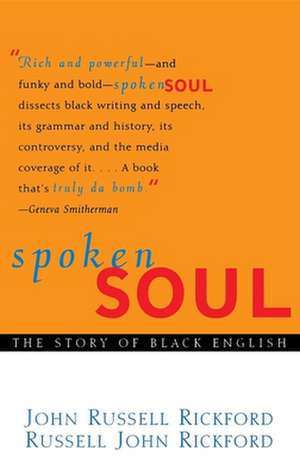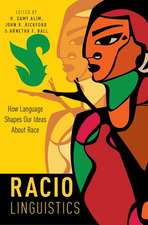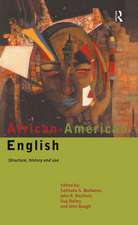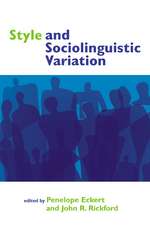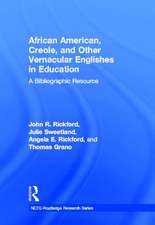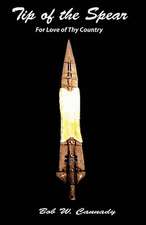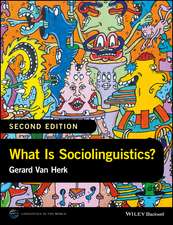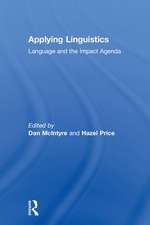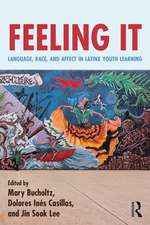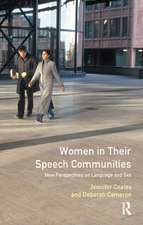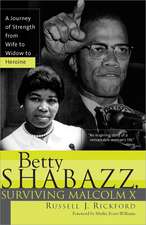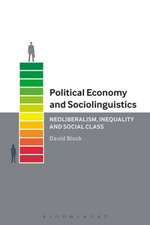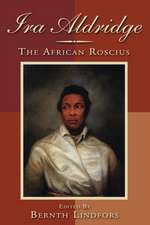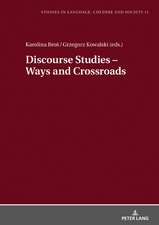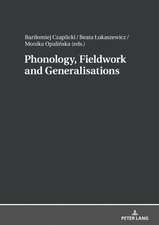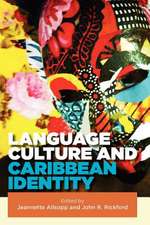Spoken Soul: The Story of Black English
Autor John R. Rickford, Russell John Rickford, Rickforden Limba Engleză Hardback – feb 2000
| Toate formatele și edițiile | Preț | Express |
|---|---|---|
| Paperback (1) | 103.70 lei 3-5 săpt. | |
| Wiley – 2 ian 2001 | 103.70 lei 3-5 săpt. | |
| Hardback (1) | 111.96 lei 3-5 săpt. | |
| Wiley – feb 2000 | 111.96 lei 3-5 săpt. |
Preț: 111.96 lei
Nou
21.42€ • 22.43$ • 17.73£
Carte disponibilă
Livrare economică 15-29 martie
Specificații
ISBN-10: 047132356X
Pagini: 288
Dimensiuni: 236 x 163 x 28 mm
Greutate: 0.59 kg
Editura: Wiley
Locul publicării:Hoboken, United States
Public țintă
African American interest audience, Teachers, Language Buffs, Current Affairs market for books on race.Descriere
Textul de pe ultima copertă
"The language, only the language. . . . It's a love, a passion. Its function is like a preacher's: to make you stand up out of your seat, make you lose yourself and hear yourself. The worst of all possible things that could happen would be to lose that language."--Toni Morrison (1981)
Claude Brown called it "Spoken Soul." Legendary author James Baldwin referred to it as "incredible music." Writers from Paul Laurence Dunbar to Toni Morrison and Alice Walker have employed it to fully convey the experiences of black America.
In Spoken Soul: The Story of Black English, scholar and linguistics expert John R. Rickford and journalist Russell J. Rickford offer a fascinating, definitive history of the use of Black English in literature, the performing arts, religion, and everyday conversation. The Rickfords also explore America's love/hate relationship with Black English and its role in our ongoing dialogue about why and how race matters.
From our embrace of Black English as the language of jazz, funk, hip-hop, and rap, to the media-fanned furor surrounding proposals to use Ebonics as a springboard to teaching Standard English, Black English is as deeply rooted in America's politics as it is in America's culture. The Rickfords scrupulously show how education, the media, and society have been affected by the power and tenacity of Spoken Soul.
If you love words or are interested in the connection between language and identity, Spoken Soul will intrigue and enlighten you.
"Spoken Soul brilliantly fills a huge gap. . . a delightfully readable introduction to the elegant interweave between the language and its culture, its admirable linguistic structure, its multifaceted history, and its potential use in education."--Ralph W. Fasold, Georgetown university
"Spoken Soul provides a profound portrait of the power, passion, and poignancy of Black English beyond the Ebonics controversy and the perplexing paradox of linguistic prejudice."--John Baugh, Stanford University, author of Black Street Speech
In Praise of African American Vernacular English
"It possesses a pronounced lyrical quality which is frequently incompatible with any music other than that ceaselessly and relentlessly driving rhythm from poignantly spent lives."--Claude Brown (1968)
" . . . this passion, this skill, this incredible music." --James Baldwin (1978)
"Three qualities of Black English--the presence of life, voice, and clarity--testify to a distinct black value system."--June Jordan (1985)
"That mainstream English is essential to our self-preservation is indisputable. . . but it is not necessary to abandon Spoken Soul to master Standard English, any more than it is necessary to abandon English to learn French or to deprecate jazz to appreciate classical music."--John R. Rickford and Russell J. Rickford (2000)
